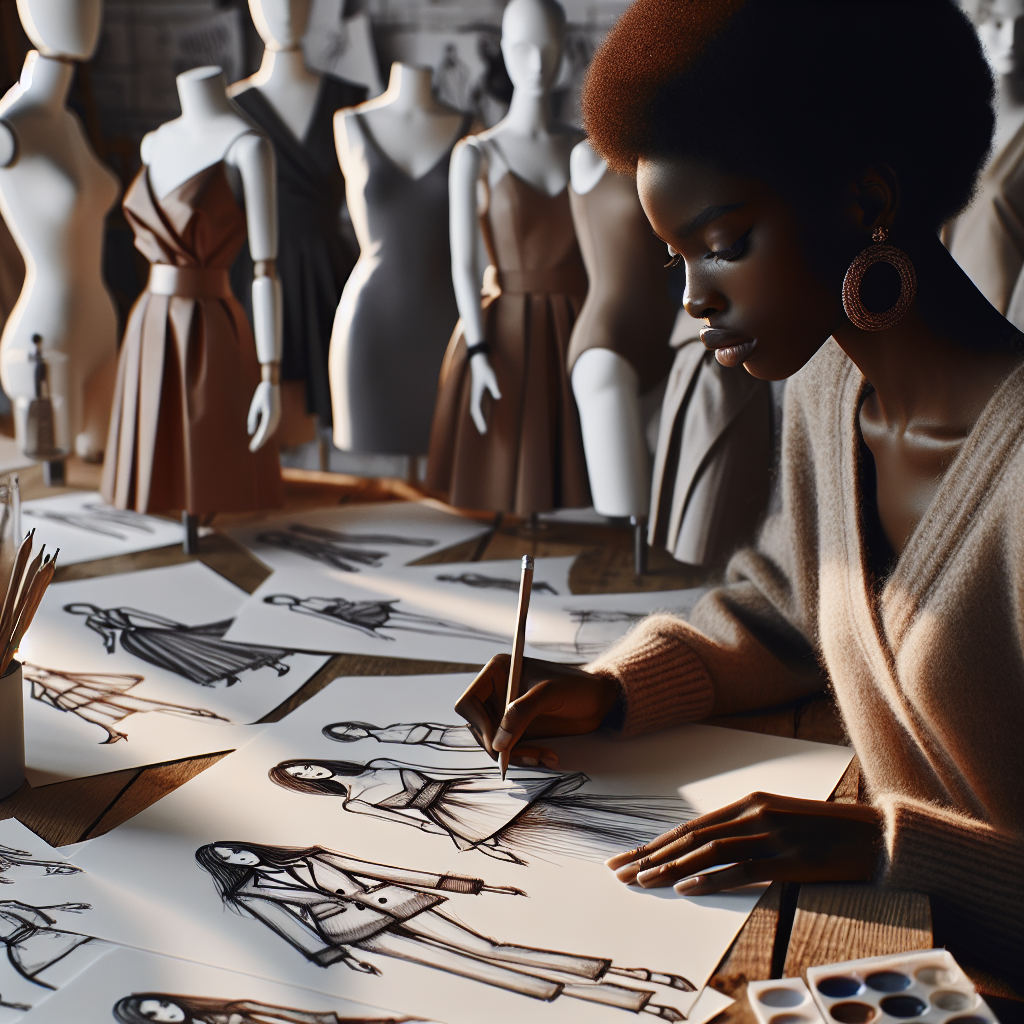How Black Designers Are Championing Diversity and Inclusivity in 2024

Fashion with Purpose: How Black Designers are Championing Diversity and Inclusivity in 2024
As we step into 2024, the intersection of fashion and social responsibility is more pronounced than ever, with Black designers leading the charge in championing diversity and inclusivity. The fashion industry, traditionally known for its exclusivity and often homogeneous narratives, is undergoing a remarkable transformation fueled by the creative vision and advocacy of Black designers who are changing the landscape of this dynamic sector.
A Cultural Renaissance in Fashion
The past decade has seen an awakening within the fashion world, driven by movements like Black Lives Matter and the broader quest for social justice. 2024 marks a pivotal year where diversity is not merely a trend but a fundamental pillar of fashion design. Designers such as Telfar Clemens, Christopher John Rogers, and Pyer Moss’s Kerby Jean-Raymond have emerged not only as trailblazers in style but also as cultural commentators shaping the narratives that define our times.
Each of these designers utilizes their platforms to discuss pressing societal issues, entering new conversations around race, identity, and representation. Telfar, with his revolutionary approach to accessibility, famously champions the mantra, “It’s not for you; it’s for everyone.” This philosophy resonates deeply, advocating for inclusivity that transcends mere aesthetics and touches upon economic equity in fashion.
Diverse Voices and Representation
The change in fashion is also evident on the runways and in campaigns that feature models of diverse backgrounds, body types, and abilities. 2024 is seeing a surge in visibility for Black models and creative talents who bring their unique stories and experiences to the fore. Designers are curating collections that celebrate Black cultural heritage while embracing a global perspective, which has led to increasingly diverse casts and creative teams.
Moreover, collaborations between established brands and emerging Black designers are becoming more common, creating pathways to visibility and credibility for those who have historically been marginalized in the industry. These partnership initiatives not only enrich the fashion ecosystem but also challenge consumers to engage with brands that prioritize social justice and diversity.
Sustainability Meets Inclusivity
The growing awareness of sustainability has prompted a reevaluation of fashion practices, allowing Black designers to address issues like environmental justice, fair labor practices, and responsible sourcing through an inclusive lens. Designers such as Stella Jean blend traditional craftsmanship with sustainable practices, showcasing how inclusivity and ethical production are intrinsically linked.
Fashion with purpose extends beyond the runway; it embraces responsible consumption and celebrates cultural narratives that honor the crafts and artistry of Black communities. In 2024, the focus on ‘slow fashion’—a resistance to fast fashion—aligns with the mission of many Black designers who wish to create pieces that reflect both quality and heritage.
Empowerment through Education
Education and mentorship programs in fashion design continue to rise, with established Black designers eager to lend their experiences to the next generation. Initiatives and workshops are emphasizing the importance of fostering talent from underrepresented communities. Programs like the CFDA Fashion Incubator and various design scholarships are crucial in making the fashion world more accessible, allowing aspiring Black designers to flourish.
The narrative is shifting; the dialogue around what constitutes beauty, style, and craftsmanship is more multifaceted, giving rise to a broader acceptance of diverse influences. In 2024, young designers are not just inheriting this rich legacy—they are actively shaping it, ensuring that their perspectives are included in the definition of modern fashion.
A Future Rooted in Unity and Purpose
As we navigate the exciting opportunities that lay ahead, it’s clear that Black designers are not merely participants in the fashion industry; they are crucial agents of change fostering a culture of inclusivity and empowerment. Their innovative designs and powerful messages inspire consumers to rethink how they engage with fashion, not just as a superficial pursuit but as a vehicle for community upliftment and social justice.
In conclusion, the year 2024 signifies a remarkable commitment to diversity and inclusivity within fashion—a movement led by Black designers striving to create a world where every voice has a place. As the industry evolves, it stands as a testament to the power of representation and the importance of fashion with purpose. As we embrace this new era, we are reminded that style can indeed be a catalyst for change, driving positive societal shifts that benefit everyone.




